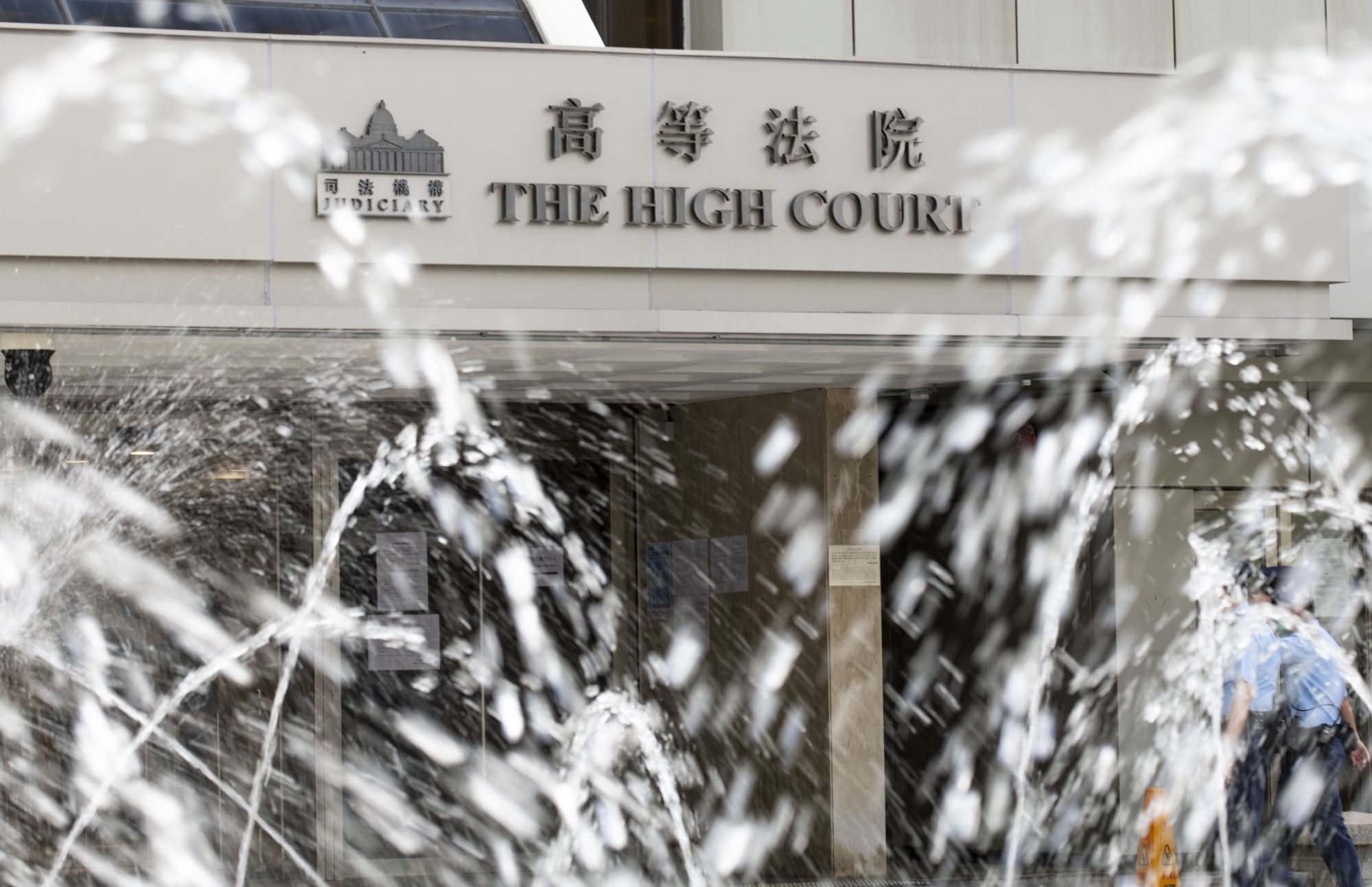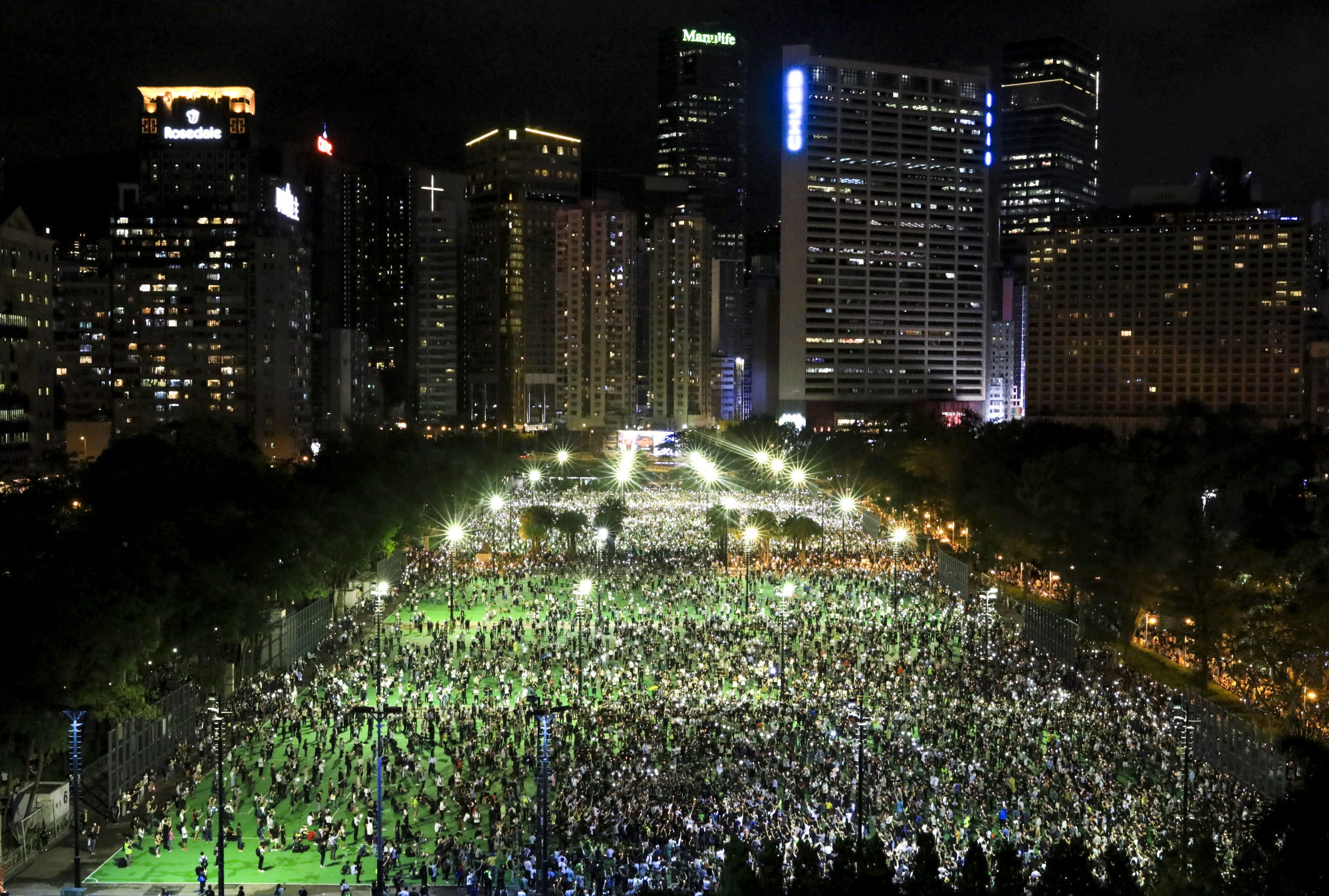
Incitement conviction for Tiananmen Square commemoration activist quashed by Hong Kong judge
- Judge rules in favour of Chow Hang-tung on grounds police had failed to consider suggestions on how event could be held safely
- But lawyers for the government side signal intent to appeal against the High Court decision
Hong Kong police failed to justify their ban on last year’s candlelight vigil to mark the 1989 Tiananmen Square crackdown, a judge ruled as she quashed an incitement conviction for a former vice-chairwoman of the group behind the annual event.
The High Court on Wednesday found in favour of Chow Hang-tung after it said the police had not given serious consideration to the organisers’ suggestions on how the gathering on June 4 could be held safely as the city was in the grip of Covid-19 restrictions.
“Apart from banning the assembly, I am of the view that the evidence did not show the police had discharged their positive duty … and considered adopting practicable measures to allow and facilitate the assembly,” Madam Justice Judianna Barnes said in her written judgment.
“The prosecution failed to establish the legality of the prohibition order,” she ruled. “I find the appellant’s challenge successful.”

But Chow, a 37-year-old barrister and activist, is not yet in the clear because prosecutors indicated they wanted to lodge an appeal with the city’s top court, the Court of Final Appeal.
Barnes agreed her ruling involved findings of “great and general importance” – the test for a further appeal – but said the prosecution would need to first categorise the legal disputes before the lower court gave the go-ahead.
Chow is detained in the maximum-security Tai Lam Prison under the Beijing-imposed national security law on charges of inciting subversion in connection with her role as vice-chairwoman of the now-disbanded Hong Kong Alliance in Support of Patriotic Democratic Movements of China.
She is also undergoing a trial in front of a magistrate on a charge of failure to assist in a national security investigation.
Subversion case of Hong Kong June 4 group’s No 2 to move to High Court
The alliance had held a candlelight vigil in Causeway Bay’s Victoria Park since 1990 to commemorate the military crackdown in Beijing a year earlier.
Police first prohibited the event in 2020 on public health grounds related to the Covid-19 crisis. Last year’s vigil was banned on similar grounds.
A District Court judge last December jailed Chow for a year for inciting and knowingly taking part in the 2020 vigil, held despite the ban.
A magistrate a month later sentenced Chow to 15 months in jail for encouraging others to join the 2021 event, before she handed down a total sentence of 22 months.
Member of Hong Kong group behind Tiananmen vigil jailed over police probe refusal
The latest conviction stemmed from Chow’s remarks in two commentaries published on social media and in a city newspaper, where she pledged to honour the “tradition” and appealed to the public to assemble in “the same place” to mourn those who died during the crackdown in Beijing.
Barnes on Wednesday endorsed the lower court’s decision in that case, but found the magistrate was wrong to refuse to examine Chow’s challenge to the legality of the police ban.
“If the prohibition order was not lawfully issued, the appellant would not break the law, even though she had called on others to assemble in Victoria Park,” Barnes said.

She added the authorities were obliged to allow and assist public assemblies as far as was practicable.
The police had argued the vigil could expose the public to risks of contracting Covid-19, but Barnes said the force had made no suggestions on how the alliance could tackle public health concerns, despite the organisers’ promise to obey any reasonable instructions.
Barnes also highlighted the advice given by the Department of Health at the time, which only opposed large meetings where people might remove their masks.
She added an independent appeal panel had also failed to substantiate its decision to uphold the police’s decision.
